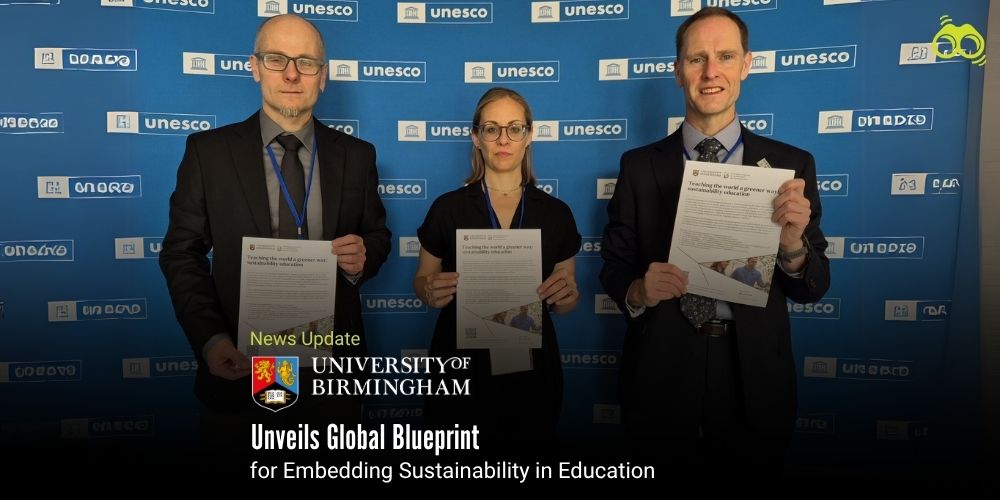New Policy Brief Supports UNESCO’s Education for Sustainable Development Goals
Experts Propose Policy Framework to Embed Sustainability in Global Learning
The University of Birmingham has taken a significant step towards promoting sustainability in global education, unveiling a comprehensive policy blueprint designed to assist policymakers in integrating environmental consciousness into learning systems worldwide. This newly developed sustainability education policy brief, according to the university, is aligned with the objectives of UNESCO’s Education for Sustainable Development (ESD for 2030) programme, which focuses on five key priority areas: policy frameworks, learning environments, educator training, youth engagement, and community involvement. By addressing these fundamental elements, the blueprint develops holistic and impactful strategies, embedding sustainability across education systems at every level to prepare future generations to tackle environmental and social challenges.
The policy blueprint was officially unveiled on 10 June in Paris during UNESCO’s celebration of 50 years of the Intergovernmental Hydrological Programme. It outlines a range of recommendations to integrate sustainability into all levels of education, closely aligning with UNESCO’s ESD for 2030 framework.
Among its proposals, the blueprint urges UK policymakers to align curricula across all education levels with the three pillars of sustainability, environmental, economic, and social, while ensuring annual progress tracking. Additionally, it advocates for a unified framework in terms of language, methods, and competencies, along with mandatory training for educators and the inclusion of sustainability in teacher education programmes. Moreover, the document calls for the establishment of networks to support Climate Action Plans in schools, aiming to create consistent implementation pathways.
On a global scale, the blueprint highlights the need for collaboration in sustainability education, promoting a shared language and approach across different education systems. It further recommends locally adapted resources, the inclusion of Indigenous perspectives, and culturally sensitive educational frameworks. Additionally, it encourages higher education institutions to work together, particularly in support of UNESCO’s mission to advance education for women and girls in Africa.
Professor Julia Myatt emphasised the importance of this initiative, stating that it seeks to create a clear pathway from school to career, ensuring climate literacy among students. She underlined the urgency of the matter, noting that 70% of students support the integration of sustainability into education, while 84% of young people express concerns about climate change. Experts have also pointed out that climate education is often too narrowly focused on environmental concerns, neglecting the social and economic dimensions of sustainability. Professor David Hannah highlighted the need for interdisciplinary learning, which enables students to think holistically and act responsibly in addressing complex sustainability challenges. He further stated that the University of Birmingham is leading the way in adopting this approach.
While acknowledging the existing challenges in making sustainability a core component of education at all levels, Professor Hannah expressed confidence that the university’s policy recommendations provide a strong foundation for driving this essential transformation. With strategic implementation and sustained collaboration, the policy blueprint has the potential to reshape global education, ensuring that sustainability becomes a fundamental pillar in learning systems worldwide.
Editor’s Note
The University of Birmingham’s new plan for teaching sustainability is an important step toward bringing environmental, economic, and social awareness into schools and universities around the world. By updating what is taught in classrooms, training teachers, and encouraging students to think across different subjects, the goal is to prepare young people to handle real-life sustainability challenges in a smarter and more complete way. This blueprint gives clear advice to governments on how to make climate education a regular part of learning, not just an optional topic. It also highlights the importance of using local knowledge, including Indigenous perspectives, and making sure materials fit different cultures and languages.
Skoobuzz believes that this plan could change how we teach about the environment and society, helping students connect classroom lessons to real-world actions.














0 Comments (Please Login To Continue)